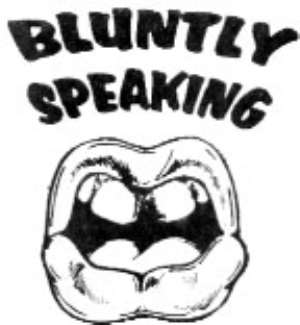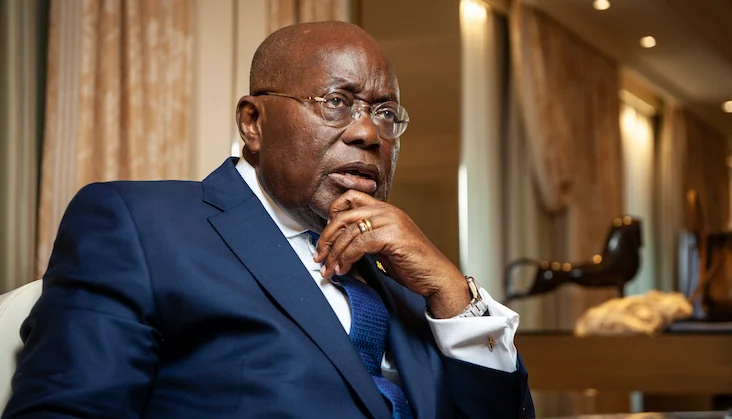
ANY PERSON who heard Mr. Justice F. K. Kpegah, a retired Supreme Court Justice, and lawyers David Annan and Chris Ackumey of the National Democratic Congress (NDC), could be excused for thinking that the acquittal and discharge of the accused persons in the very recent Ya-Na murder trial, represented a travesty of justice at its worst.
Indeed, Mr. Justice Kpegah, speaking on METRO-TV'S GOOD EVENING GHANA programme, stated unambiguously that if he were to rate the performance of the judge, Mr. Justice Ayebi, he would have scored just one out of ten for him.
Mr. Justice Kpegah wondered why the presiding judge had to refer to cases outside Ghana, instead of cases in Ghana. Interestingly, two cases cited by Mr. Kpegah himself, were English and Kenyan ones.
The other panelists, including Nana Asante Bediatuo, contradicted Mr. Justice Kpegah, by stating that the presiding judge referred to cases in Ghana too. The contradictions did not seem to bother the retired Justice.
The analysis by Mr. Ackumey and Mr. Annan seemed to tear to shreds the ruling by the judge.
After listening to the three gentlemen, I told myself that the Minister of Justice and Attorney-General, Mr. Martin Amidu, should have no difficulty in getting the ruling overturned at the Court of Appeal.
After hearing one of the defence lawyers, Mr. Atta Akyea, and also Nana Asante Bediatuo, I was not so sure that the Attorney-General was going to have a simple, 'open-and-shut' case to deal with.
I asked myself how the same ruling could have two such diametrically opposed interpretations by persons of the same profession. Well, it is good to know that if the Attorney-General should appeal, it is the ruling of three Appeal Court justices that will matter.
Of course, I am not ruling out the possibility that the case could go all the way to the Supreme Court for a final determination.
We can only wait for the next move by the Attorney-General or, even, by the Central Government itself. However, one or two things bother me.
In the first place, if the Attorney-General is going to appeal, then what did President John Evans Atta Mills mean, when he emotionally stated that his government was going to find the killers and bring them to justice?
Which killers? What about the fifteen persons, one of whom was charged with murder, while the rest were charged with conspiracy to commit murder, as I have been told?
If the Attorney-General successfully appeals and the case goes back to the High Court (Fast Track or whatever), will it not be a safe assumption that the 15 accused persons would be the murder suspects? Will another investigation uncover a new set of murder suspects?
On the other hand, if the 15 persons are found not guilty, even after appeals to the Supreme Court, will a government investigation turn up fresh suspects? In that case, will the government find itself in an untenable position, as it goes about uncovering suspects? I am truly confused, and I need help.
The Inspector-General of Police (IGP), Mr. Paul Tawiah Quaye, must be very careful how he involves himself and the Police Service in the case.
He is reported to have said that his administration would soon review the whole investigation process of the murder of the Ya-Na, and that should any fresh evidence be found against the 15 acquitted and discharged persons, fresh charges would be preferred against them (DAILY GRAPHIC-Thursday, April 7, 2011).
The IGP must be careful not to raise false hopes in those who feel that they have not had justice done them. Under what circumstances can they be brought to court again to answer charges of murder?
What should happen if fresh investigations fail to uncover any evidence to be used against them? What happens if an appeal by the state all the way to the Supreme Court fails?
The IGP must know that for President John Evans Atta Mills, his party and the government, the Ya-Na murder case is not just a judicial matter for the courts.
The President, his party and the government are desperate, because they made an electoral promise to unfailingly find the killers of the Ya-Na, a promise they are in danger of not fulfilling.
The President described the decision as a setback, and some party and government people wore black clothes to signify they were mourning. The President raved and ranted as the decision caught him in a vise of his own making.
I am all for thorough and professional investigations that can once and for all unravel the mystery surrounding the heinous murder of the Ya-Na.
He was a human being; he was a King and his murder has had consequences for the whole of Ghana.
The IGP must be careful against being stampeded by politics and emotions. He should be careful not to drag the Police Servicer into any political quagmire.
The fallout of the decision has not been pleasant. The judiciary has come under strong attack. Former President J. J. Rawlings is reported to have said as follows:
'Today, the Supreme Court, not just the Supreme Court, as lot of these court houses are loaded and packed with corrupt cronies of Kufuor, how do you expect to get justice from some of these corrupt elements?' (THE PIONEER – Wednesday, April 6, 2011).
The Ghana Bar Association has had to chide those of its members who have made uncomplimentary remarks about the judiciary.
A university-educated Honourable Member of Parliament is also reported to have said that Nana Akufo Addo engineered the whole thing, so that he could have the verdict as a kind of birthday cake.
The embattled Appeal Court judge who handled the case is said to be a one-time cadre of the Rawlings so-called revolution. If true, it would be ironic, wouldn't it?
I hope the Ghana Police Service can show that the demonstrators met the time element for applying to demonstrate under the Public Order Act.
And the leader of the demonstration went to the Supreme Court and warned of dire consequences should judgment go against them again. The police did not see any 'fear and panic' situation there.
People have been arrested and threatened with prosecution on less threatening talk.
Well, they even told the President of the Republic, the First Gentleman, the First Citizen and Commander-in-Chief of the Armed Forces not to set foot in Tamale. So, who is a mere Chief Justice, who is a woman, and a distant fourth in the Order of Precedence?
Great times are here when a President can be so warned.
Editor's Note: This script was filed by the columnist two clear days before news of the State having filed an appeal against the acquittal and discharge of the 15 persons was made public in the Saturday April 9, 2011 edition of DAILY GRAPHIC.




 Mahama was a one-term president because he was incompetent and brought untold ha...
Mahama was a one-term president because he was incompetent and brought untold ha...
 Shortage of ‘bentua’ hits Accra Central Market
Shortage of ‘bentua’ hits Accra Central Market
 Blame IMF programme for Cedi's decline —Prof Bokpin
Blame IMF programme for Cedi's decline —Prof Bokpin
 Court denies Kasoa soldier killer bail
Court denies Kasoa soldier killer bail
 All crooked deals are cooked at Jubilee House – Franklin Cudjoe
All crooked deals are cooked at Jubilee House – Franklin Cudjoe
 Don’t be tricked by Mahama’s rebranding move – Richard Ahiagbah to Ghanaians
Don’t be tricked by Mahama’s rebranding move – Richard Ahiagbah to Ghanaians
 Petition against Kissi Agyebeng not surprising – Justice Srem Sai
Petition against Kissi Agyebeng not surprising – Justice Srem Sai
 Akufo-Addo’s handling of petitions against top officials disappointing – Justice...
Akufo-Addo’s handling of petitions against top officials disappointing – Justice...
 Osino: ‘Sleeping’ tipper truck driver runs into building
Osino: ‘Sleeping’ tipper truck driver runs into building
 Ahmed Suale's killers will be brought to justice no matter how long it takes - A...
Ahmed Suale's killers will be brought to justice no matter how long it takes - A...
